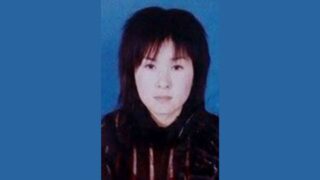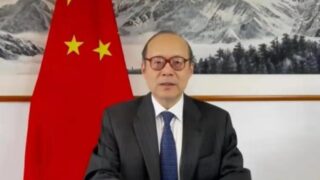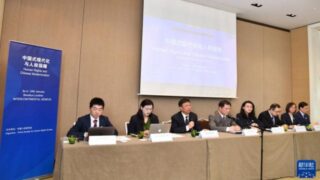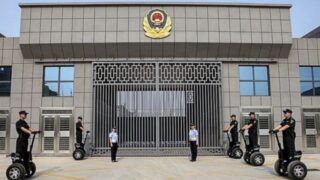The Society of Threatened People urges the UN Human Rights Council to hold the People’s Republic of China accountable for its crimes. And it is time for wrapping up the 2024 UPR China report too.
by Marco Respinti
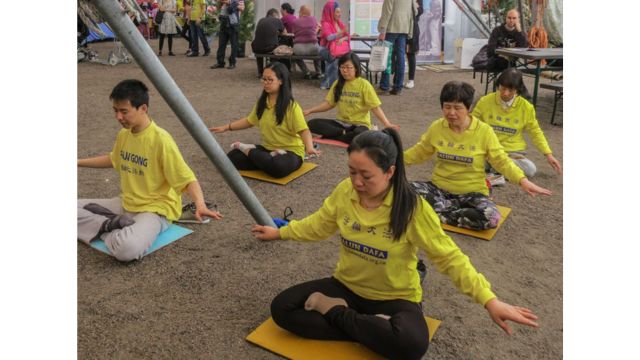

On February 5, 2024, the Gesellschaft für bedrohte Völker-International, GfbV-International, an international NGO and human rights organization established in 1970 and based in Göttingen, Germany, better known through its English name and acronym, Society for Threatened Peoples International (STPI) submitted a written statement to the United Nations Human Rights Council’s (UNHRC) 55th session (26 February–5 April, 2024). Published by the UNHRC with the official date of February 22, the written statement laments inaction on the staggering case of the practitioners of Falun Gong, also known as Falun Dafa, in the People’s Republic of China (PRC).
Concisely and precisely, the document sums up the Chinese Communist Party’s (CCP) systematic and tireless war on religion, waged since the beginning against all faiths. “From 1949 on,” the STPI notes, “the Government of China has sought to control the thoughts of the Chinese people, carrying out campaign after campaign to stamp out ideological diversity.”
As to Falun Gong, a new religious movement established in China in 1992, initially the Chinese regime tolerated and even promoted its activities as healthy practices, due to the importance the group gives to Qigong, the traditional Chinese physical exercises. But then started persecuting it, once it realized it was impossible to cancel its spiritual nature. STPI repeats it clearly to UNHRC: “Though Falun Gong was spiritual in nature and focused on improving the character of the individual rather than advocating for societal changes, the then-State and Communist Party leader, Jiang Zemin, gave the order to ‘ruin their reputations, bankrupt them financially and destroy them physically’.” Thus, since 1999 the Chinese regime engaged in the planned eradication of its practitioners and believers, “who are then subject to forced conversion via torture—at times resulting in death—and even forced organ harvesting. International human rights experts have deemed this campaign a cold genocide.”
Though it is important to always repeat these known facts, recently new elements intervened, prompting the STPI to reiterate this denunciation with new cogency. “On January 18, 2024, in Strasbourg,” the written statement observes, “the European Parliament adopted the EU Resolution titled ‘European Parliament resolution of 18 January 2024 on the ongoing persecution of Falun Gong in China, notably the case of Mr. Ding Yuande (2024/2504[RSP])’.” Notably, that resolution called for recognition and justice for all Falun Gong practitioners, but did it by singling out the specific case of one of them and his family: Ding Yuande, sentenced and detained in the PRC; his wife, Ma Ruimei, detained as well, then released and now under constant threats; and their son, Ding Lebin, expatriated and very active on their behalf (his letter of January 30, thanking the European Parliament, is available online).
This is strategically important. While the Ding family needs our full support, as all those persecuted do, submitting a concrete case to the UNHRC, with faces and names of clearly traceable people, can help overcome the “déjà vu” mechanisms that sadly may infiltrate also high-ranking and authoritative international organizations, producing that self-inflicted sense of impotence on which rogue regimes like the PRC prosper.
With that new resolution, the STPI explains, “[t]he European Parliament condemned the persecution of Falun Gong practitioners and other minorities, including Uyghurs and Tibetans by China. It also urged China to end its suppression of religious freedom as well as its transnational repression of Chinese religious dissidents.” But here is something new. “As of February 5, 2024, China has not responded publicly to the EU resolution […], nor the resolution’s call for the release of Falun Gong practitioner Mr. Ding Yuande, who was sentenced to three years in prison and fined approximately $2,100 USD (or 15,000 CNY) on December 15, 2023, by the Wulian County People’s Court. Mr. Ding appealed the judgement. On January 29, 2024, his appeal was affirmed by the Rizhao Municipal Intermediate People’s Court of Province Shandong.”
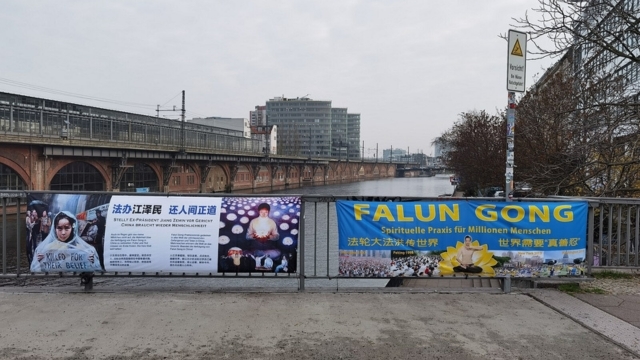

The silence of the PRC on the Ding family case is astonishing as it is on all other cases. The PRC was silent on the Ding family and other cases (as the STPI written statement reminds the UNHRC), also during the 70-minutes presentation delivered by the Permanent Representative of the PRC to the UN Office at Geneva, Switzerland, Chen Xu, at the Universal Periodical Review (UPR) on the state of human rights in the PRC held on January 23, 2024. The PRC remained silent as well when, at the UPR, the delegation of Canada requested Beijing to stop the persecution of Falun Gong practitioners during the 45-seconds time it had at its disposal for questions and observations.
UNHRC is silent too. The 2024 UPR of the PRC announced its final report by February 9, fulfilling the most important part of its draft, the “Summary of the proceedings of the review process.” Without that, the report remains a mere chronicle of the UPR progress. The deadline, as “Bitter Winter” denounced, was not met. A month later, it is still not met. As per the procedure, the final report of a UPR should be presented during one of the following regular sessions of the UNHRC. The 2024 UPR of the PRC, whose final report is still a draft, seems to be scheduled for presentation at the 56th session, June 18–July 12. Will the final report appear at this session?
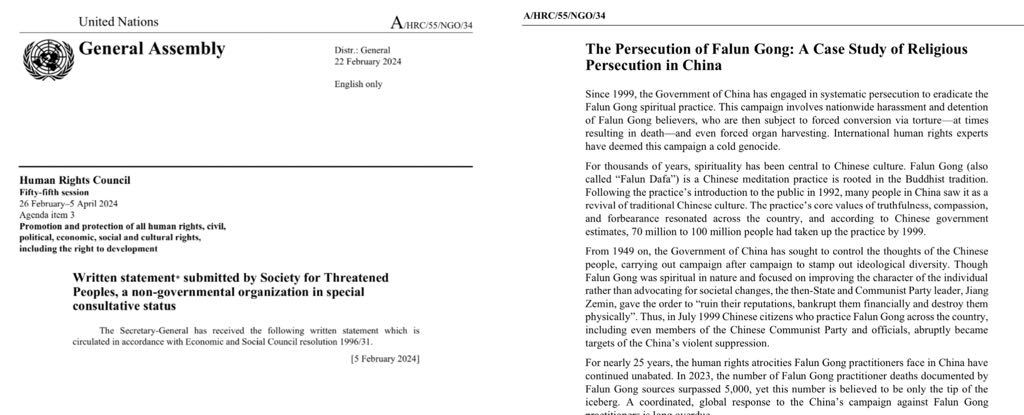

Ahead of time comes instead, ridiculously, the CCP. Just four days after the UPR, and days before the deadline of the UNHRC final report that hasn’t been met yet, on January 27 the mouthpiece of the party, “Global Times”—which is in essence the international version of the “People’s Daily” aimed at spreading propaganda outside of China— published a note bombastically and falsely entitled “China’s report for 4th Universal Periodic Review unanimously adopted at UNHRC.” The PRC’s report presented at the UPR was not up for any adoption and, even if shyly, it was criticized by some countries, so no unanimity was there. Here, the CCP missed the proverbial opportunity to be silent.



